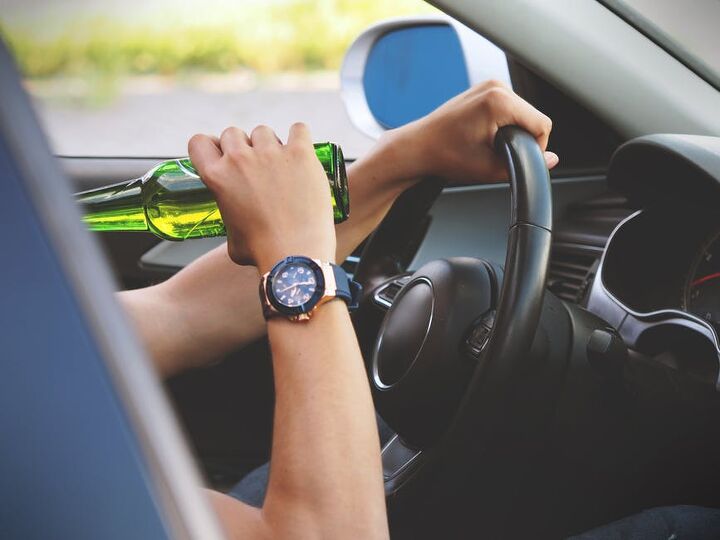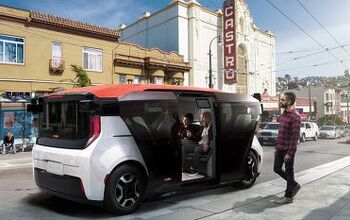It's Looking Like Virginians Won't Get a Chance to Legally Drink and Drive at Home

A bill seeking to amend Virginia’s DUI laws passed through the state Senate last month, but don’t expect the law to make it onto the books. The legislation aimed to make intoxicated driving legal if a driver performed the boozy feat on his or her own private property, with all other existing laws remaining the same.
As you might expect, this didn’t go over well with law enforcement, politicians, safety advocates, and various other concerned citizenry.
Introduced by Sen. Richard Stuart, the bill amended existing impaired driving laws with the statement, “This section shall not apply to any person driving or operating a motor vehicle on his own residential property or the curtilage thereof.”
Currently, violation of a DUI law leaves one on the hook for a number of penalties in the state of Virginia. Drivers could face a license suspension, $500 fine (at a minimum), or 50 hours of community service. The law forbids operation of a motor vehicle — meaning car, motorcycle, ATV, moped or train — anywhere in the state, meaning rural landowners with large properties could find themselves facing the long arm of the law after quaffing too many Coors Banquets while tooling around the back 40.
After a Senate committee sidelined his bill out of fear it was too broad, the senator changed his initial proposed amendment, adding specifics. It was this version the committee passed, as well as the Senate. Stuart claims the operation of a motor vehicle wasn’t at the forefront of his mind when he tabled the bill. Rather, it was cases where citizens are charged for drinking in a parked car in their own driveway.
“The bill had to do with a DUI on your private property or current property,” he said later. “And by trying to define where you could actually be charged with it, I think my bill went a little too broad.”
The outcry was immediate, with many calling the law a first step on a slippery slope. Among its detractors were the Virginia Association of Commonwealth’s Attorneys and Washington Regional Alcohol Program. A spokesperson for the Virginia Association of Chiefs of Police said that, for supporters, the bill came down to property rights and the ability to not have the state interfere with the enjoyment of that private property. The spokesperson did admit it sent a mixed safety message to youth.
In theory, potentially dangerous operation of a vehicle would be contained to the person’s property, less the cops pounce. However, opponents claimed a person drinking in a vehicle on private property can’t be counted on to stay there.
It’s probably a debate that’s dead in the water because, as of today, so is the bill. A Virginia House panel reportedly voted down the bill on Friday.
Driving under the influence is illegal in all 50 states, though some state laws are vague on whether that applies to private property. In many, DUI laws apply to all places and properties, while others make the distinction of “public” property. Still others add mud to the water by forbidding intoxicated driving on properties that are accessible to the public, which aptly describes most non-gated yards and properties.
These vague distinctions are just one of the reasons why lawyers will always exist.

More by Steph Willems
Latest Car Reviews
Read moreLatest Product Reviews
Read moreRecent Comments
- El scotto Dale Carnegie had his grandkids do some upgrades?
- El scotto Work it backwards. How many people use Tesla Super Chargers: Primary Charging Point - this is my normal charging station; Secondary charging station - at a retail location or planned on trips, Rarely or Not at All.
- FreedMike Some clarification would make sense here: Tesla is laying off the team responsible for BUILDING NEW Supercharger stations. Apparently the ones already being built are going to be completed. The folks who maintain the current network are apparently unaffected. https://www.nytimes.com/2024/04/30/business/tesla-layoffs-supercharger-team.htmlAlso, many other other manufacturers are switching to NACS in the upcoming years, and some of those companies are already providing Supercharger adaptors for their non-NACS vehicles. Some Superchargers can already accomodate non-Tesla vehicles with a built in adaptor called the "magic dock."Given all this, my guess? They're trying to maximize utilization of the current system before building it out further.
- Dartman Damn Healey! You can only milk a cow so many times a day! Don’t worry though I bet Flex, 28, 1991, and all the usual suspects are just getting their fingers warmed up!
- FreedMike Your Ford AI instructor:


































Comments
Join the conversation
I’m not keen on the recent spate of “knee bone’s connected to the leg bone” type of laws. A recent absurd application occurred when an obese police officer attempted to climb a fence in pursuit of a suspect. The corpulent cop vapor-locked and ended up in the coronary care unit, the suspect was subsequently charged with assaulting a police officer. That’s risible. There was no intent. Stop the insanity.
If there's a policeman on my private property he better have a god damned warrant.